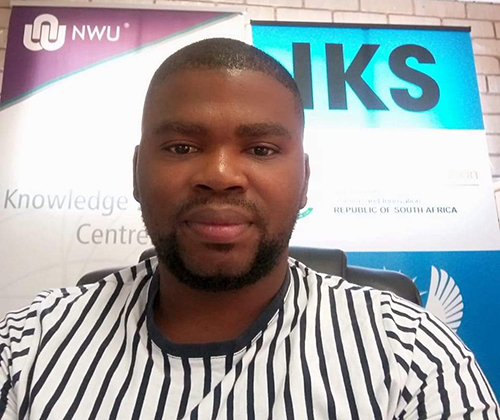“Partnerships between the government, the private sector and civil society are critical for any sustainable development agenda. However, experience in Africa has shown that participation by local communities in development projects is rarely interactive or empowering,” says Otsile Maditsi, a PhD candidate and lecturer at the Indigenous Knowledge Systems (IKS) Centre of the North-West University (NWU).
This need not be the case. As part of his PhD research, Otsile argues that indigenous communities of practice (iCoPs) provide a platform where the voices, rights, knowledge and experiences of local communities can be heard, respected and included in negotiations on development agendas.
The topic of the research is “The role of indigenous communities of practice in fostering community engagement and partnerships for sustainable development in Africa”.
Otsile says the crux of community engagement and partnership is that it should be inclusive, responsive, equitable and ethical.
“An indigenous community of practice is developed, acquired and managed by a close group of people who are usually ethnically or culturally linked and use indigenous knowledge to address problems in order to survive.”
iCoPs are largely products of local indigenous knowledge and governance systems, he says. His research uses a thematic analysis of two South African iCoPs to illustrate how the principles, values, shared vision and goals of sustainable community engagement and partnerships can be built among stakeholders.
“Indigenous knowledge is the social capital of any community, and development agencies in Africa should use iCoPs, along with their knowledge producers, propagators and practitioners, as pillars and building blocks in fostering sustainable engagement and partnership pathways,” concludes Otsile.

Otsile Maditsi.
